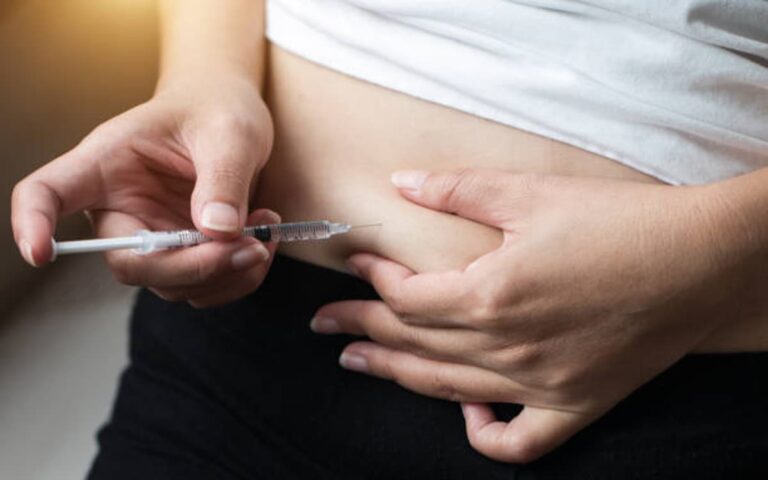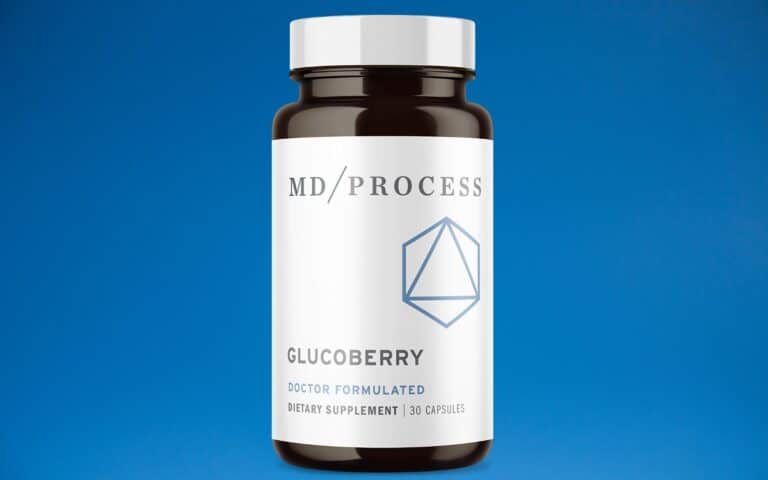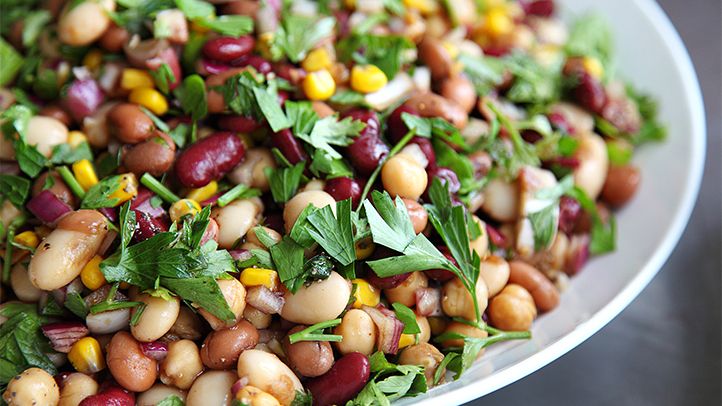The Best Fluffy Pancakes recipe you will fall in love with. Full of tips and tricks to help you make the best pancakes.

Diabetes is a chronic condition that affects millions of people worldwide. It is characterized by high levels of sugar in the blood, which can lead to a wide range of health problems, including nerve damage, kidney damage, heart disease, and vision loss.
But Do Drinking Water Lower Blood Sugar quickly? This article will explain everything you may need to know about how Drinking Water helps regulate and Lower Blood Sugar.
One of the most effective ways to manage diabetes is through diet and lifestyle changes, and one of the simplest and most accessible changes you can make is to drink more water.

In this blog post, we will explore the relationship between drinking water and blood sugar levels, and whether drinking water can help lower blood sugar levels.
What is Blood Sugar?
Blood sugar, also known as blood glucose, is the primary source of energy for the body’s cells. It comes from the food we eat, and the body’s digestive system breaks down carbohydrates into glucose, which then enters the bloodstream.
Insulin, a hormone produced by the pancreas, helps regulate blood sugar levels by signaling cells to absorb glucose from the bloodstream and convert it into energy.
When the body doesn’t produce enough insulin or doesn’t respond properly to insulin, blood sugar levels can rise to dangerous levels. This condition is called diabetes and can cause a wide range of health problems.
==> Learn more about 5 Best Supplements for Stiff Joints, Ligaments, Tendons, and Muscles
What Causes High Blood Sugar Levels?
There are several factors that can cause high blood sugar levels, including:
☘️ Poor Diet: Eating too much sugar or simple carbohydrates can cause blood sugar levels to spike.
☘️ Lack of Exercise: Physical activity helps the body use insulin more efficiently, which can help regulate blood sugar levels.
☘️ Stress: The body releases stress hormones, such as cortisol, which can cause blood sugar levels to rise.
☘️ Medications: Certain medications, such as steroids, can raise blood sugar levels.
☘️ Illness: Infection, illness, and injury can cause blood sugar levels to rise.
Do Drinking Water Lower Blood Sugar?
Drinking water regularly may offer several health benefits. Studies indicate that it may rehydrate the blood, besides reducing the risk of developing type II diabetes.
By nature, the human body regulates its blood sugar levels in a complex way, involving the pancreas and insulin. However, drinking water offers an additional avenue to regulate blood sugar levels.
Consuming ample fluids and staying hydrated is essential for the functionality of kidneys, which remove waste from the body. Therefore, drinking water regularly may help promote good kidney health and prevent insulin resistance.
Some research suggests that drinking water before a meal has the potential to temporarily reduce blood sugar levels. However, individuals with diabetes should consume a balanced diet and follow doctor’s recommendations to manage blood sugar levels effectively.
Can Drinking Water Lower Blood Sugar Levels?
While drinking water alone is not a cure for diabetes, it can help regulate blood sugar levels in several ways. Here’s how:
☘️ Hydration: When you’re dehydrated, your blood sugar levels can rise. Drinking plenty of water can help keep you hydrated and prevent blood sugar spikes.
☘️ Weight Management: Drinking water before meals can help you feel fuller and reduce the amount of food you eat, which can help with weight management. Maintaining a healthy weight can help regulate blood sugar levels.
☘️ Improved Insulin Response: Drinking water can help improve insulin sensitivity and reduce insulin resistance, which can help regulate blood sugar levels.
☘️ Reduced Stress: Drinking water can help reduce stress levels, which can help regulate blood sugar levels.
☘️ Kidney Function: Dehydration can lead to kidney damage, which can affect blood sugar levels. Drinking plenty of water can help keep your kidneys functioning properly and prevent damage.

How Much Water Should You Drink?
The amount of water you should drink depends on several factors, including your age, gender, weight, and activity level. As a general rule, the Institute of Medicine recommends that men drink 3.7 liters (about 13 cups) of water per day and women drink 2.7 liters (about 9 cups) of water per day.
However, individual needs may vary, and you should consult your doctor to determine the appropriate amount of water.
When Should You Drink Water?
It’s essential to drink water throughout the day, but can drinking water lower blood sugar? there are certain times when drinking water can be especially beneficial for regulating blood sugar levels. Here are some tips:
☘️ Drink water before meals: Drinking water before meals can help you feel fuller and reduce the amount of food you eat, which can help regulate blood sugar levels.
☘️ Drink water with meals: Drinking water with meals can help slow down the digestion of food and prevent blood sugar spikes.
☘️ Drink water after meals: Drinking water after meals can help flush out excess sugar from the bloodstream and prevent blood sugar spikes.
☘️ Drink water during exercise: Staying hydrated during exercise can help regulate blood sugar levels and prevent dehydration.
☘️ Drink water when you wake up: Drinking water when you wake up can help kickstart your metabolism and regulate blood sugar levels throughout the day.
Drinking water is an easy and accessible way to help regulate blood sugar levels, but it is not a substitute for proper medical treatment and a healthy diet and lifestyle.
If you have diabetes, it’s important to work closely with your doctor to develop a treatment plan that is right for you.
Drinking water can be a helpful addition to that plan, but it should not be relied upon as the sole method of blood sugar management.
By staying hydrated, managing your weight, and improving insulin sensitivity, you can take important steps towards managing your diabetes and maintaining good health.
Yes, it is possible to have low blood sugar without diabetes. The medical term for low blood sugar is hypoglycemia, and it can occur in people who do not have diabetes for a variety of reasons.
One common cause of hypoglycemia in people without diabetes is reactive hypoglycemia. This occurs when the body overreacts to a rise in blood sugar and produces too much insulin, causing blood sugar levels to drop too low. Reactive hypoglycemia can be caused by eating a large meal or consuming foods high in sugar or refined carbohydrates.
Other possible causes of hypoglycemia in people without diabetes include:
☘️ Excessive alcohol consumption
☘️ Certain medications, such as those used to treat high blood pressure or heart disease
☘️ Critical illnesses, such as liver failure or sepsis
☘️ Hormone deficiencies, such as adrenal insufficiency or growth hormone deficiency
☘️ Eating disorders, such as anorexia nervosa or bulimia
Symptoms of hypoglycemia can include shakiness, sweating, dizziness, confusion, and weakness. In severe cases, hypoglycemia can lead to seizures, loss of consciousness, and even death.
If you are experiencing symptoms of hypoglycemia, it’s important to speak with a healthcare professional to determine the underlying cause and develop an appropriate treatment plan.
In some cases, lifestyle changes such as adjusting your diet or reducing alcohol consumption may be enough to manage hypoglycemia. In other cases, medication or hormone replacement therapy may be necessary.

☘️ Get Regular Exercise: Regular physical activity can help lower blood sugar levels and improve insulin sensitivity. Aim for at least 30 minutes of moderate-intensity exercise, such as brisk walking, most days of the week.
☘️ Eat a Balanced Breakfast: Eating a balanced breakfast can help regulate blood sugar levels throughout the day. Include complex carbohydrates, protein, and healthy fats in your breakfast, such as oatmeal with nuts and seeds or a vegetable omelet.
☘️ Avoid Eating Late at Night: Eating late at night can cause blood sugar levels to rise, especially if you consume high-carbohydrate or sugary foods. Try to eat your last meal of the day at least two to three hours before bedtime.
☘️ Limit Carbohydrates: Carbohydrates can cause blood sugar levels to rise quickly, so limiting your carbohydrate intake may help lower your morning blood sugar levels. Focus on eating non-starchy vegetables, healthy fats, and lean protein.
☘️ Get Enough Sleep: Lack of sleep can lead to insulin resistance, which can cause high blood sugar levels. Aim for at least 7-8 hours of sleep per night to help regulate blood sugar levels.
☘️ Drink Water: Drinking water can help flush excess sugar from the bloodstream and prevent dehydration, which can cause blood sugar levels to rise. Aim for at least 8-10 glasses of water per day.
☘️ Reduce Stress: Stress can cause blood sugar levels to rise, so finding ways to manage stress can help lower your morning blood sugar levels. Try deep breathing exercises, meditation, or yoga to help reduce stress.
☘️ Lose Weight: If you are overweight, losing weight can help improve insulin sensitivity and lower blood sugar levels. Even losing a small amount of weight can have a significant impact on blood sugar levels.
For anyone who is concerned about it can water lower blood sugarIt’s important to note that these lifestyle changes may not work for everyone, and medication may be necessary to help manage high morning blood sugar levels in some cases.
If you have diabetes and are experiencing high morning blood sugar levels, it’s important to work closely with your healthcare provider to develop an appropriate treatment plan.
==> Learn more about 5 Best Supplements for Stiff Joints, Ligaments, Tendons, and Muscles
☘️ Take Insulin or Medication: If you have been prescribed insulin or medication to help lower your blood sugar levels, taking it as directed by your healthcare provider can help bring your blood sugar down quickly.
☘️ Drink Water: Drinking water can help flush excess sugar from the bloodstream and prevent dehydration, which can cause blood sugar levels to rise. Aim for at least 8-10 glasses of water per day.
☘️ Exercise: Exercise can help lower blood sugar levels by helping the body use insulin more efficiently. Even a short walk or light exercise can help bring blood sugar levels down.
☘️ Eat Protein and Fiber: Eating protein and fiber can help slow down the absorption of carbohydrates and prevent blood sugar spikes. Consider eating a small amount of lean protein, such as chicken or fish, and a high-fiber vegetable, such as broccoli or kale.
☘️ Monitor Blood Sugar Levels: Monitoring your blood sugar levels regularly can help you catch high blood sugar levels early and take action to bring them down. If your blood sugar levels remain high despite these efforts, it’s important to speak with your healthcare provider as soon as possible.
It’s important to note that while these strategies can help bring blood sugar levels down in the short term, they should not be relied upon as the sole method of blood sugar management.
Managing diabetes requires a comprehensive treatment plan that includes medication, lifestyle changes, and regular monitoring by a healthcare provider.
☘️ Monitor Carbohydrate Intake: Carbohydrates are broken down into sugar in the body, which can cause blood sugar levels to spike. Monitoring carbohydrate intake and choosing complex carbohydrates, such as whole grains, fruits, and vegetables, can help regulate blood sugar levels.
☘️ Focus on Fiber: Fiber slows down the absorption of carbohydrates, which can help prevent blood sugar spikes. Aim for at least 25 grams of fiber per day from sources such as fruits, vegetables, whole grains, and legumes.
☘️ Eat Healthy Fats: Healthy fats, such as those found in nuts, seeds, avocados, and olive oil, can help improve insulin sensitivity and regulate blood sugar levels.
☘️ Choose Lean Protein: Lean protein sources, such as chicken, fish, and tofu, can help regulate blood sugar levels and promote feelings of fullness.
☘️ Avoid Sugar and Sweetened Beverages: Sugar and sweetened beverages can cause blood sugar levels to spike and should be avoided. Instead, choose sugar-free beverages, such as water or unsweetened tea, and use artificial sweeteners in moderation.
☘️ Control Portion Sizes: Controlling portion sizes can help regulate blood sugar levels and prevent overeating. Using measuring cups and a food scale can help ensure accurate portion sizes.
☘️ Eat Regularly: Eating regular meals and snacks can help regulate blood sugar levels and prevent blood sugar spikes. Aim for three meals and one to two snacks per day, and try to eat at the same times each day.
☘️ Stay Hydrated: Drinking plenty of water can help regulate blood sugar levels and prevent dehydration, which can cause blood sugar levels to rise.
Work with a Registered Dietitian: A registered dietitian can help develop an individualized meal plan and provide guidance on healthy eating habits to manage type 2 diabetes.
It’s important to note that while dietary changes can be effective in managing type 2 diabetes, medication and insulin therapy may still be necessary.
It’s important to work closely with a healthcare provider to develop a comprehensive treatment plan that includes medication, dietary changes, and regular monitoring of blood sugar levels.
- Dragons Den Weight Loss Gummies UK Reviews – #1 Dragons Den Weight Loss Gummies, Ingredients, Price and Where to Buy -
- Dragons Den UK Weight Loss Pill Reviews Holly Willoughby Weight Loss – UK #1 Slimming Capsule? -
- Weight Loss Pills Dragons Den UK – How Older Women Lose Weight with UK #1 Weight Loss Capsules Safely, Quickly & Effectively -









